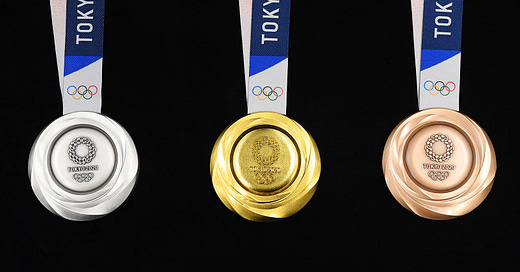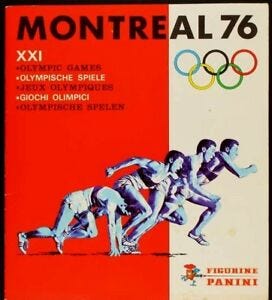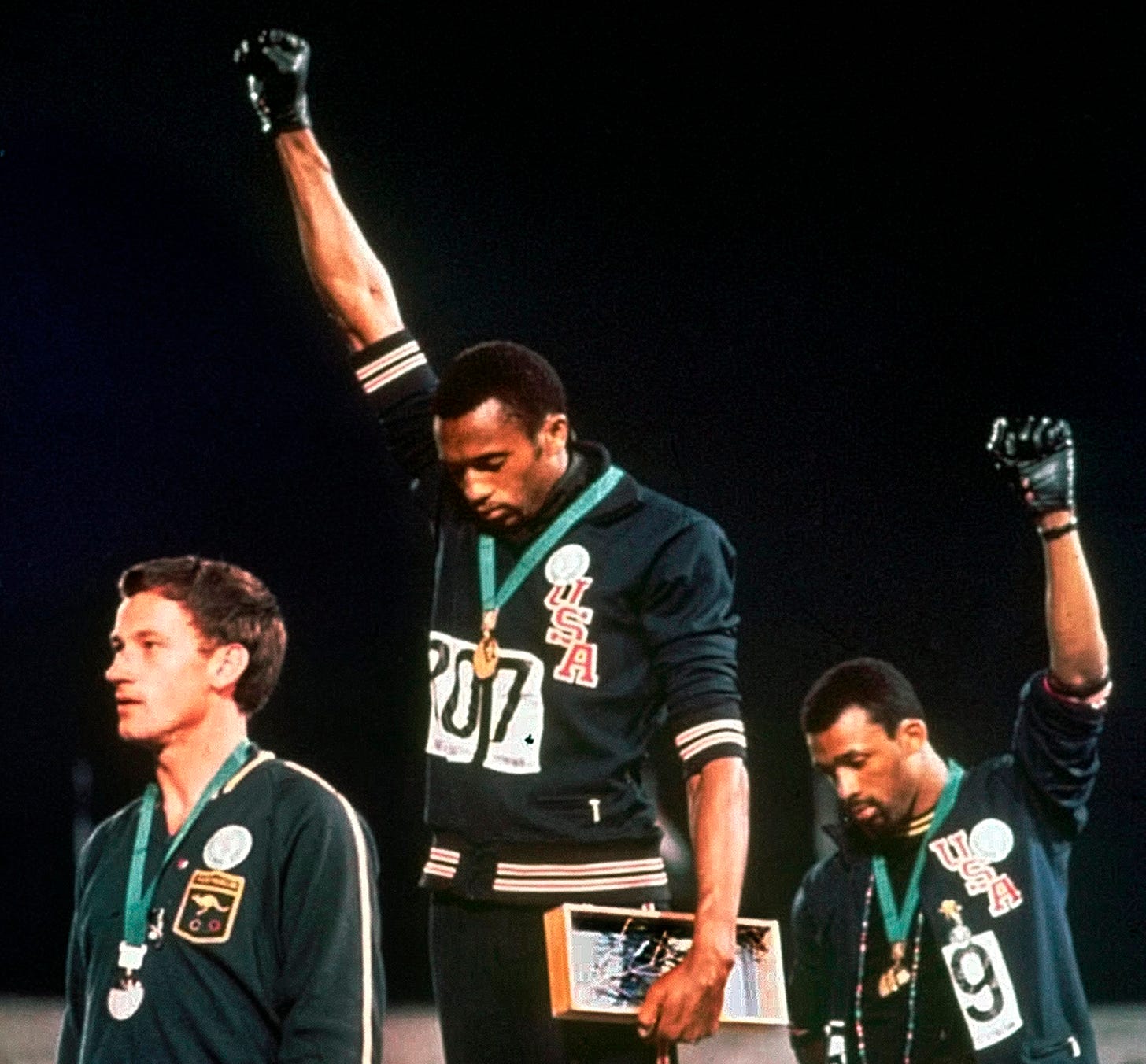Welcome to another weekly edition of Sports-Tech Biz! Every Friday, we learn about intriguing topics related to sports, business, and technology. If you’re reading this online or in a forwarded email, sign up for the newsletter:
Here’s one thing I’ve been thinking about for a while:
Why isn’t there any buzz surrounding Olympic memorabilia or collectibles?
Ever heard of anything like it? Yeah, neither do I. At least none relevant enough.
Wouldn’t it be cool to hear that some fan paid millions for the goggles Michael Phelps used when he broke the butterfly record?
Or that one of Mark Spitz’s multiple gold medals was resold for a record amount?
Or that a pair of Bolt’s cleats went in an auction for a couple of thousand dollars?
There are digital collectibles, NFTs, and fan tokens for so many sports but nothing really Olympic-focused.
So today, I’m giving away a multi-million dollar business idea for free: Olympic Memorabilia.
Here’s why I think it would work.
Olympic Memorabilia
There are different reasons why I think Olympic memorabilia could work, the most important one being its scarcity and uniqueness.
Olympic games happen only once every four years (sometimes five if you get a virus in the way). Still, the event itself is super unique – and the athletes attending the event are also extraordinarily rare.
Suppose you had a baby today (congrats if you are, by the way)— the chances of he/she becoming an Olympian are roughly .00014%.
Wanna talk about rarity? Ha! How many Olympic athletes do you know, personally? Me? Zero, efes, nada.
Remember NFTs? They represent something unique from either the tangible or the intangible world. Bingo – Olympic athletes are ULTRA unique and the Olympic games happen once in a while. Uniqueness = check.
Tangible & Intangible
The Olympics produce and use some of the most delicate objects in sports. Some are ultra common (i.e., sports apparel), but others are pretty rare (i.e., medals).
Now, let’s think about authenticity – say I own a medal from a relative athlete who won a few decades ago, and I want to sell it. How can I prove that? Challenging.
Today’s technology can create a digital signature and verify on-chain the ownership and authenticity of any Olympic object. This way we’d always trust the seller. Hence, value-added to the object and the market.
Again, this technology already exists – someone needs to just do it (h/t to Nike).
Olympic torches, medals, posters, apparel, you name it!
Haters will say, “no one will sell an Olympic medal because of its emotional value” – and while I’d love to agree, the truth is, everything has a price, and as long as someone is willing to pay it, then there’s a market.
Power to the Athlete
The creator economy is shifting dramatically due to the democratization and development of new platforms that allow platforms to reach, share, and charge for their content directly to their consumers.
Today, there’s Substack for writers, OnlyFans for adult entertainment, YouTube and Twitch for gamers, Spotify for musicians, etc.
What’s the X platform for Olympic athletes?
There’s nothing in the space.
Broke the record? Could definitely sell a digital collectible about that.
An underdog who made the podium? Let them sell their signed jersey!
The Bottom Line
Olympic athletes are huge personalities that can struggle to earn a reasonable income while they’re devoting their lives to their sport.
About 3.2 billion people watched the Olympics in Rio. Hell of an audience! Toko? I bet will be higher. Let’s give those athletes a way to leverage it!
Put together the scarcity, uniqueness, and objects surrounding the Olympics, and you have a business.
The best part?
Today’s technology allows it.
Athletes are content creators – they give us the best entertainment in the world – I say we help them leverage and monetize their Olympic performances through Olympic memorabilia.
🎙 Halftime Snack of the Week
Omer is our guest of honor for this Halftime Snack.
He's the CEO and co-founder of Sea-Analytics — a video-based platform that analyses the performance of sailing athletes and helps them improve through personalized insights.
In our conversation, we talked about lessons from being a professional sailor, the technological evolution of sailing, how he came up with Sea-Analytics, the future of sailing, and so much more!
Listen on Apple | Spotify | Google
QUICKIES
🌇 Olympic Charter Cities; Hosting the Olympics is expensive and becoming unpopular. Could charter cities gain legitimacy by taking the job no other city wants to take?
🚘 The Driverless Shuttle Helping Toyota Win Gold; The Olympics have always been an opportunity to showcase new technologies to the world, from bullet trains to 5G wireless applications. Now? Autonomous vehicles.
From the Vault
On the emoji scale, how much did you enjoy today’s newsletter?
🙄 | 😐 | 🙂 | 😃 | 🤩
Until next week,
Ronen Ainbinder
Twitter:
@Ronenain
Website:
ronenainbinder.com
-
Sports-Tech Biz
Twitter:
@sports_techbiz
Instagram:
@sportstechbiz
Read more: sportstechbiz.substack.com.
-
Halftime Snacks Podcast











